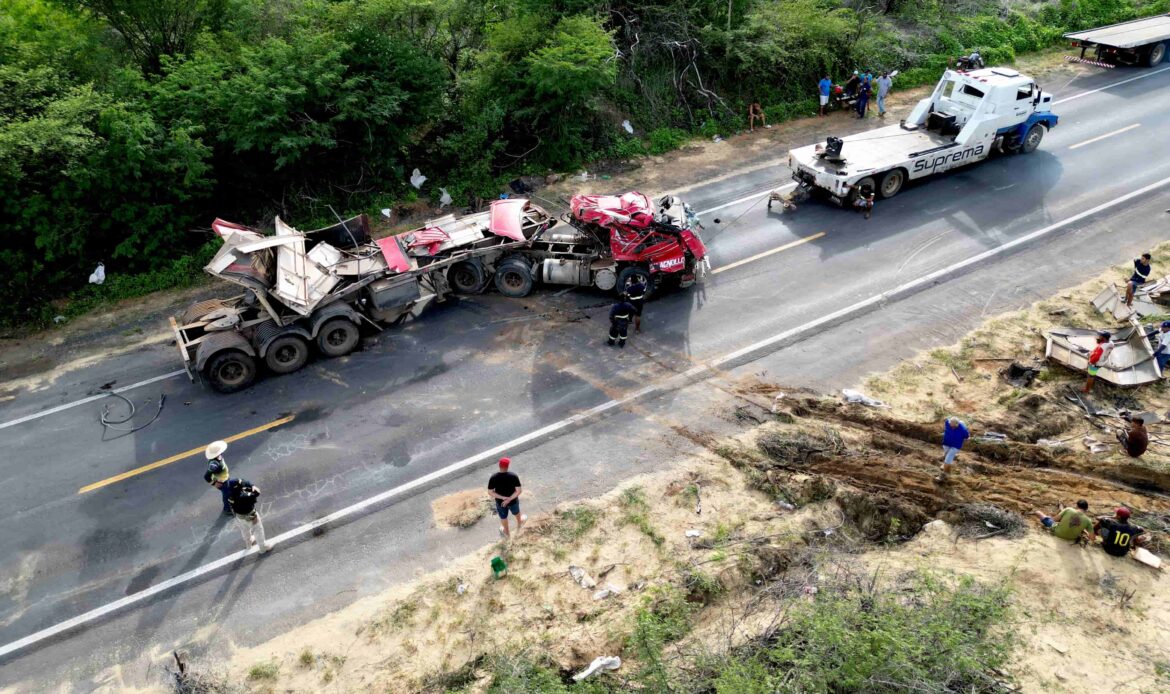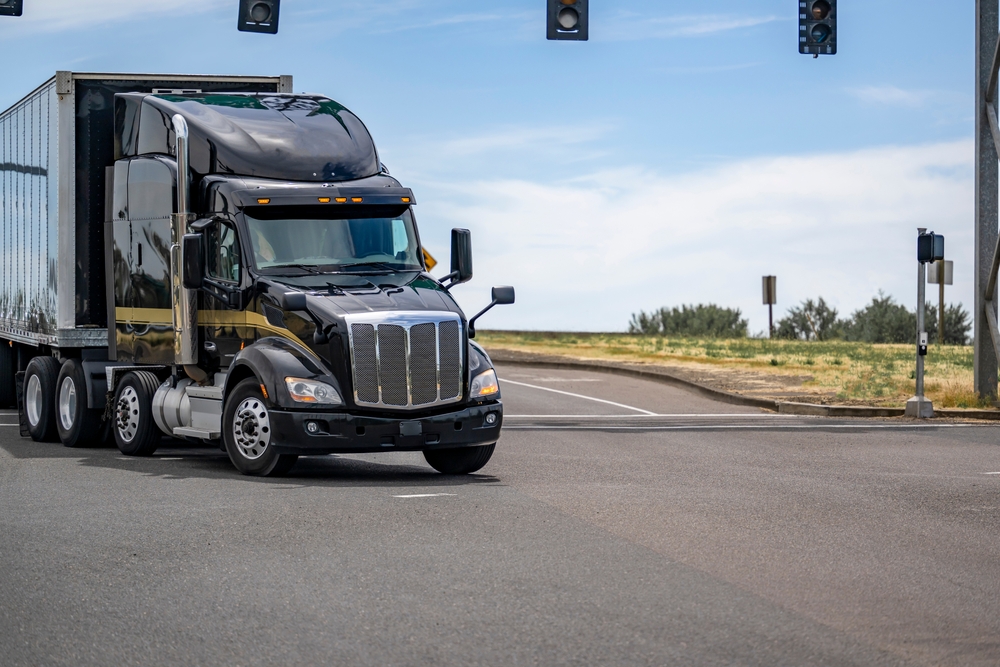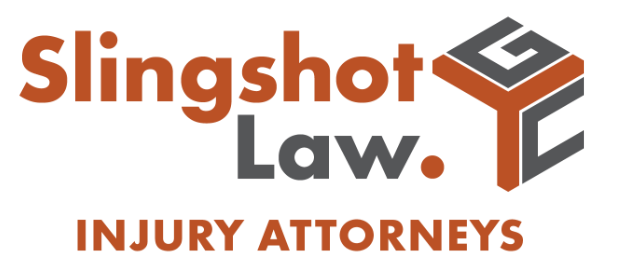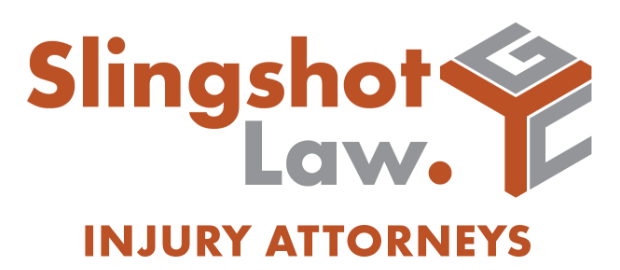At Slingshot Law, we’ve seen firsthand the devastating injuries, mounting medical bills, and disputes with powerful trucking companies resulting from collisions with commercial motor vehicles. Our Austin truck accident lawyer investigates federal regulation violations and driver negligence, preserves critical evidence before it disappears, and handles insurance negotiations and claim filings so you can focus on recovery.
Truck accidents on I-35, MoPac, US 183, or SH-130 differ fundamentally from passenger vehicle crashes. Commercial vehicles weighing 80,000 pounds create catastrophic outcomes—traumatic brain injuries, spinal cord damage, and wrongful deaths that reshape families forever. Multiple potentially liable parties, including trucking companies, brokers, shippers, cargo loaders, and maintenance contractors, complicate claims.
While you focus on medical treatment and rehabilitation, we build cases that hold negligent carriers accountable. Call us now for a free consultation at (866) 647-1311.
Key Takeaways for Austin Truck Accident Claims
- Federal and Texas regulations governing commercial trucks create specific evidence requirements and liability standards that differ from passenger vehicle accidents
- Black box (ECM) data, driver logs, and maintenance records disappear quickly; spoliation letters must be sent within days to preserve critical proof
- Multiple parties may bear liability, including truck drivers, trucking companies, brokers, shippers, cargo loaders, and vehicle manufacturers
- Texas proportionate responsibility rules reduce recovery by your percentage of fault; findings of more than 50 percent fault bar recovery entirely
- Slingshot Law truck accident attorneys work on contingency, so you pay nothing unless we recover compensation
Why Texans Choose Slingshot Law for Truck Accident Cases

Truck accident cases demand immediate evidence preservation, knowledge of FMCSA regulations, and a willingness to litigate against well-funded trucking companies and their insurance carriers.
Our Austin truck accident legal services include:
- Rapid evidence preservation through spoliation letters securing black box data, driver logs, maintenance records, and inspection reports before trucking companies destroy or lose them
- FMCSA violation investigation analyzing hours-of-service compliance, driver qualification files, vehicle maintenance histories, and safety ratings
- Multi-party liability analysis identifying all responsible parties including drivers, carriers, brokers, shippers, cargo loaders, and equipment manufacturers
- Accident reconstruction coordinating biomechanical engineers and crash analysts who download ECM data, analyze impact forces, and recreate collision dynamics
- Economic loss calculation, engaging vocational experts and economists, when warranted, to quantify lost earning capacity and lifetime care needs for catastrophic injuries
- Insurance negotiation handling communications with trucking company insurers who deploy teams to minimize payouts and dispute liability
- Trial preparation and litigation, building cases that encourage fair settlements, or taking cases to court when carriers refuse to offer fair compensation
- Contingency fee representation advancing all case costs without upfront payment, meaning you pay nothing unless we recover compensation
While you take care of yourself, we handle investigations, expert coordination, and legal proceedings. We communicate clearly, respond promptly to questions, and pursue compensation reflecting the true impact of commercial vehicle collisions.
Contact us now to schedule your free truck accident case consultation at (866) 647-1311.
How Truck Accidents Differ From Car Accidents
Commercial vehicle crashes create unique legal and practical challenges that distinguish them from passenger car collisions.
Catastrophic Injury Severity
Trucks weighing up to 80,000 pounds create forces that exceed human tissue tolerance. Underride crashes, where passenger vehicles slide beneath truck trailers, may cause decapitation injuries and instant deaths. Jackknife accidents, where trailers swing perpendicular to cabs, may crush multiple vehicles. Rollover incidents involving cargo spills could create secondary collisions affecting dozens of vehicles.
Traumatic brain injuries, spinal cord damage causing paralysis, amputations, severe burns, and multiple fractures routinely result from truck crashes. These catastrophic outcomes require lifetime medical care, home modifications, assistive devices, and attendant services.
Complex Federal Regulations
Federal Motor Carrier Safety Administration (FMCSA) regulations govern commercial trucking through regulations addressing driver qualification, hours of service, vehicle maintenance, cargo securement, and safety ratings. FMCSA violations create negligence per se, which results in automatic liability when regulations are breached.
You need an attorney who understands which FMCSA rules apply to your case, how to obtain compliance records, and how to use regulatory violations to prove liability and strengthen your claim.
Multiple Liable Parties
Truck accidents may involve numerous potentially responsible parties beyond just the truck driver. Trucking companies can be held liable for the actions of their drivers, inadequate training, or pressuring drivers to violate safety rules. Freight brokers who hire unsafe carriers, shippers who demand unrealistic delivery schedules, cargo loaders who improperly secure freight, and manufacturers of defective truck components may all share responsibility.
Identifying every liable party becomes critical because each defendant brings separate insurance coverage. Trucking companies and their insurers may also attempt to shift blame among these parties to reduce their own exposure. An experienced attorney investigates all relationships, subpoenas contracts and communications, and pursues available insurance policies to secure fair compensation for catastrophic injuries.
Extensive Insurance Coverage
Federal law requires commercial carriers to maintain $750,000 to $5 million liability coverage, depending on cargo type and vehicle weight. These higher policy limits and the greater likelihood of catastrophic claims may mean insurers are more aggressive in disputing claims.
Common Causes of Austin Truck Accidents

Determining how truck crashes occur helps identify liable parties and gather evidence proving negligence. Here are some common causes of Austin, Texas truck crashes:
Hours-of-Service Violations
Driver fatigue from exceeding hours-of-service limits slows reaction times and causes drivers to fall asleep behind the wheel. Carriers might pressure drivers to meet unrealistic delivery schedules, leading to falsified logs and ELD manipulation. Our truck accident attorneys subpoena ELD data, fuel receipts, and GPS records to prove that actual driving time exceeded the legal limits.
Inadequate Vehicle Maintenance
Brake failures, tire blowouts, and steering malfunctions can cause catastrophic crashes. Federal regulations require pre-trip inspections, periodic maintenance, and annual inspections. Maintenance records, inspection reports, and repair invoices help prove that carriers deferred necessary maintenance to reduce costs.
Improper Cargo Loading
Overweight trucks or improperly secured cargo create rollover risks and lost-load hazards. The Federal Motor Carrier Safety Regulations specify cargo securement requirements varying by freight type. Bills of lading, weight tickets, and loading manifests prove overweight violations or improper securement.
Distracted and Impaired Driving
Truck drivers using cell phones, eating, or adjusting GPS systems are more likely to cause distraction crashes. Cell-phone records subpoenaed through litigation prove that texting or calls were made at the time of the crash. Drug and alcohol testing after crashes establishes impairment. Positive tests trigger automatic disqualification and may create clear liability.
Blind Spot and No-Zone Crashes
Large trucks create extensive blind spots where passenger vehicles disappear from the driver’s view. Failure to check blind spots before making lane changes or turns can cause sideswipe and underride crashes. Dash-cam footage and witness statements prove drivers changed lanes without verifying clearance.
How Slingshot Law Handles Austin Truck Accident Claims
Insurance adjusters representing trucking companies challenge fault, dispute injury severity, and minimize economic losses. Our truck crash lawyers address these strategies through comprehensive evidence gathering.
Your Slingshot Law truck accident attorney secures crucial evidence like:
- ECM (black box) data downloaded from trucks documenting speed, braking, throttle position, and hours of operation in seconds before crashes
- Driver qualification files, including licenses, medical certificates, training records, prior violations, and employment history
- Hours-of-service logs, both electronic and paper, showing actual driving time versus legal limits
- Maintenance records documenting brake inspections, tire replacements, and mechanical repairs
- Vehicle inspection reports from roadside inspections and annual certifications
- Cargo documents, including bills of lading, weight tickets, and loading manifests
- Trucking company safety ratings from FMCSA’s SAFER System
- Crash scene evidence, including police reports, photographs, witness statements, and traffic-camera footage
- Cell-phone records proving distraction at crash time
- Drug and alcohol test results when post-accident testing occurred
We then coordinate accident reconstructionists, if needed, who analyze ECM data, calculate impact forces, and recreate collision dynamics. Medical experts may also be needed to link crash forces to specific injuries. Finally, our team may work with economists to quantify the lost earning capacity and lifetime care needs associated with catastrophic injuries.
Compensation in Texas Truck Accident Cases

Texas law permits recovery for both economic and non-economic losses when a truck driver or a trucking company’s negligence causes injuries.
Economic Damages
Economic damages compensate for measurable financial losses. Recoverable damages may include:
- Medical expenses like emergency care, hospitalization, surgery, rehabilitation, and ongoing treatment
- Future medical costs calculated through life-care plans for permanent injuries
- Lost wages from missed work during treatment and recovery
- Diminished earning capacity when catastrophic injuries prevent returning to prior employment
- Property damage for vehicle total loss
- Home modifications for wheelchair accessibility
- Vehicle modifications, including lifts and hand controls
- Assistive devices, including wheelchairs and prosthetics
Non-Economic Damages
Non-economic damages address intangible harm. This may include:
- Pain and suffering from physical injuries and reduced quality of life
- Mental anguish, including depression, anxiety, and post-traumatic stress
- Physical impairment limiting mobility and independence
- Disfigurement from scarring affecting appearance and self-image
- Loss of enjoyment of life when injuries eliminate activities and experiences
Settlement amounts depend on injury severity, treatment duration, permanency of limitations, age and earning capacity, strength of FMCSA violation evidence, and available insurance coverage, including trucking company policies and umbrella coverage.
Wrongful Death Claims
When truck accidents result in death, surviving spouses, children, and parents may file wrongful death claims under Texas Civil Practice & Remedies Code § 71.004. These claims pursue compensation for funeral and burial expenses, loss of the deceased’s earning capacity, loss of companionship and guidance, and mental anguish.
Settlement amounts depend on the severity of the injury, the duration of treatment, the permanency of limitations, the individual’s age and earning capacity, the strength of evidence supporting the FMCSA violation, and the availability of insurance coverage, including trucking company policies and umbrella coverage.
Families facing sudden loss while navigating complex trucking regulations require wrongful death attorneys who can handle both the legal and emotional challenges these cases present.
Texas Proportionate Responsibility
Under Texas Civil Practice & Remedies Code § 33.001, if you share some responsibility for your crash, any compensation awarded gets reduced by your percentage of blame. If a jury finds you more than 50 percent at fault, you cannot recover damages.
Trucking company defense attorneys may seek ways to shift blame, possibly claiming you were speeding, changed lanes unsafely, or failed to avoid the collision. Early investigation preserves evidence establishing truck driver violations while documenting your reasonable conduct.
Who Can Be Held Liable in Texas Truck Accidents?

Multiple parties may bear responsibility for commercial vehicle crashes, creating opportunities to stack insurance policies for adequate compensation.
Truck Drivers
Drivers who violate hours-of-service rules, operate while fatigued or impaired, speed, follow too closely, or fail to check blind spots face personal liability. Their actions create negligence claims against both themselves and their employers.
Trucking Companies
Motor carriers face vicarious liability under respondeat superior for driver negligence during work duties. They face direct liability for inadequate driver training, failing to conduct background checks, pressuring drivers to violate regulations, or deferring necessary maintenance.
Brokers and Shippers
Freight brokers who hire carriers without verifying safety ratings or insurance face negligent selection liability. Shippers who load cargo improperly, overload trucks, or demand unrealistic delivery schedules, creating hours-of-service pressure, may share fault.
Cargo Loaders
Third-party loading companies that fail to distribute weight properly or secure freight adequately create rollover and lost-load hazards. Loading manifests and securement records prove their negligence.
Manufacturers
Truck and component manufacturers face product liability for defective brakes, tires, coupling systems, or other equipment failures causing crashes. These claims pursue compensation from manufacturers and distributors separate from driver and carrier liability.
Steps to Take After a Truck Accident in Austin
Actions taken after commercial vehicle crashes shape claim outcomes and preserve critical evidence.
- Seek medical attention if you have not already. Traumatic injuries require immediate emergency care. Delayed symptoms, including brain injuries and internal bleeding, may not appear for hours or days.
- Report the crash. Austin Police Department or Texas DPS document officer observations and preliminary fault. Commercial vehicle crashes typically generate detailed investigation reports.
- Obtain police reports. Austin Police Department reports are available at APD headquarters at 715 E 8th Street or through online systems. Request copies for your records.
- Preserve vehicle and scene evidence. Photograph truck damage, cargo, road conditions, and your vehicle before repairs. Trucking companies remove vehicles quickly to begin repairs and eliminate evidence.
- Preserve all receipts and records. Save medical bills, pharmacy receipts, therapy invoices, wage-loss statements, and property damage estimates.
- Do not give recorded statements to trucking company adjusters. You are not required to speak with the trucking company’s insurance carrier. Politely decline and let your attorney handle communications.
- Avoid social media posts. Insurance companies monitor accounts for content contradicting injury claims.
- Contact an Austin truck accident lawyer immediately. Slingshot Law’s injury team sends spoliation letters within days, preserving black box data, driver logs, and maintenance records that trucking companies routinely destroy.
FAQ for Austin Truck Accident Lawyer
How Long Do I Have to File a Claim in Texas?
The Texas statute of limitations allows two years from the crash date or two years from the date of death. Missing this deadline bars recovery regardless of injury severity or fault clarity.
How Much Does an Austin Truck Accident Lawyer Cost?
Our Austin truck accident lawyers work on contingency, meaning you pay nothing up front. Fees come only from a settlement or a verdict. Slingshot Law advances all case costs, including accident reconstruction, black box downloads, and expert witnesses, recovering expenses only if we win compensation.
How Long Do Truck Accident Cases Take in Austin?
Settlement timelines vary based on injury severity, FMCSA violation evidence, and insurance company cooperation. Cases with clear federal violations and catastrophic injuries may settle sooner than complex cases involving disputed liability or multiple defendants.
What If the Trucking Company’s Insurance Denies My Claim?
Denials may cite disputed liability, questioned injury severity, or alleged policy exclusions. An attorney can challenge denials by presenting FMCSA violation evidence, medical documentation, and accident reconstruction.
What Happens If the Truck Driver Was an Independent Contractor?
Trucking companies often classify drivers as independent contractors, but FMCSA regulations still hold motor carriers liable for the actions of independent contractors.
Schedule a Free Consultation With an Austin Truck Accident Lawyer
Commercial vehicle crashes create life-altering injuries. Critical evidence, including black box data, driver logs, and maintenance records, may disappear within days without legal intervention.
After these crashes, you need representation familiar with FMCSA regulations, willing to coordinate accident reconstructionists and medical experts when warranted, and prepared to litigate against trucking companies when settlement offers prove inadequate.
Call (866) 647-1311 for a free case review. Our Austin truck accident lawyer will listen to your story, answer your questions, and explain your options. Let Slingshot Law handle the legal complexities while you focus on recovery and your family.
Austin Office
Address: 1802 Lavaca St, Austin, TX 78701
Phone: 866-647-1311

